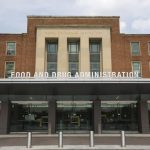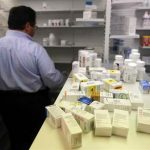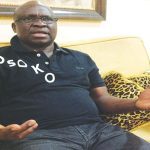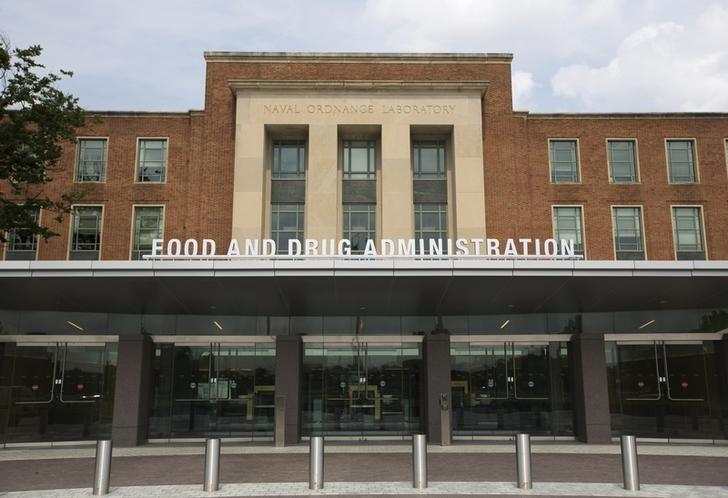The U.S. Food and Drug Administration (FDA) is stepping up efforts to better regulate an emerging field of medicine that holds significant promise for curing some of the most troubling diseases by using the body’s own cells.
A small number of “unscrupulous actors” have seized on the promise of regenerative medicine and stem cell therapies to mislead patients based on unproven, and in some cases, dangerously dubious products, the FDA said on Monday.
Regenerative medicine makes use of human cells or tissues that are engineered or taken from donors. Health regulators have approved some types of stem cell transplants – that mainly use blood and skin stem cells – after clinical trials found they could treat certain types of cancer and grow skin grafts for burn victims.But many potential therapies are still in the earliest stages of development. These therapies are sometimes advertised with the promise of a cure, but they often have scant evidence backing their efficacy or safety.
The FDA said it had taken steps to tackle the problem of some “troubling products” being marketed in Florida and California.
Federal officials on Friday seized from San Diego-based StemImmune Inc vials containing hundreds of doses of a vaccine reserved only for people at high risk for smallpox, the FDA said.
The seizure followed recent FDA inspections that confirmed the vaccine was used to create an unapproved stem cell product, which was then given to cancer patients, the agency added.
The health regulator will present a new policy framework this fall that will more clearly detail the “rules of the road” for regenerative medicine, FDA Commissioner Scott Gottlieb, a cancer survivor, said in a statement.
The U.S. Food and Drug Administration (FDA) is stepping up efforts to better regulate an emerging field of medicine that holds significant promise for curing some of the most troubling diseases by using the body’s own cells.
A small number of “unscrupulous actors” have seized on the promise of regenerative medicine and stem cell therapies to mislead patients based on unproven, and in some cases, dangerously dubious products, the FDA said on Monday.
Regenerative medicine makes use of human cells or tissues that are engineered or taken from donors. Health regulators have approved some types of stem cell transplants – that mainly use blood and skin stem cells – after clinical trials found they could treat certain types of cancer and grow skin grafts for burn victims.But many potential therapies are still in the earliest stages of development. These therapies are sometimes advertised with the promise of a cure, but they often have scant evidence backing their efficacy or safety.
The FDA said it had taken steps to tackle the problem of some “troubling products” being marketed in Florida and California.
Federal officials on Friday seized from San Diego-based StemImmune Inc vials containing hundreds of doses of a vaccine reserved only for people at high risk for smallpox, the FDA said.
The seizure followed recent FDA inspections that confirmed the vaccine was used to create an unapproved stem cell product, which was then given to cancer patients, the agency added.
The health regulator will present a new policy framework this fall that will more clearly detail the “rules of the road” for regenerative medicine, FDA Commissioner Scott Gottlieb, a cancer survivor, said in a statement.
The U.S. Food and Drug Administration (FDA) is stepping up efforts to better regulate an emerging field of medicine that holds significant promise for curing some of the most troubling diseases by using the body’s own cells.
A small number of “unscrupulous actors” have seized on the promise of regenerative medicine and stem cell therapies to mislead patients based on unproven, and in some cases, dangerously dubious products, the FDA said on Monday.
Regenerative medicine makes use of human cells or tissues that are engineered or taken from donors. Health regulators have approved some types of stem cell transplants – that mainly use blood and skin stem cells – after clinical trials found they could treat certain types of cancer and grow skin grafts for burn victims.But many potential therapies are still in the earliest stages of development. These therapies are sometimes advertised with the promise of a cure, but they often have scant evidence backing their efficacy or safety.
The FDA said it had taken steps to tackle the problem of some “troubling products” being marketed in Florida and California.
Federal officials on Friday seized from San Diego-based StemImmune Inc vials containing hundreds of doses of a vaccine reserved only for people at high risk for smallpox, the FDA said.
The seizure followed recent FDA inspections that confirmed the vaccine was used to create an unapproved stem cell product, which was then given to cancer patients, the agency added.
The health regulator will present a new policy framework this fall that will more clearly detail the “rules of the road” for regenerative medicine, FDA Commissioner Scott Gottlieb, a cancer survivor, said in a statement.
The U.S. Food and Drug Administration (FDA) is stepping up efforts to better regulate an emerging field of medicine that holds significant promise for curing some of the most troubling diseases by using the body’s own cells.
A small number of “unscrupulous actors” have seized on the promise of regenerative medicine and stem cell therapies to mislead patients based on unproven, and in some cases, dangerously dubious products, the FDA said on Monday.
Regenerative medicine makes use of human cells or tissues that are engineered or taken from donors. Health regulators have approved some types of stem cell transplants – that mainly use blood and skin stem cells – after clinical trials found they could treat certain types of cancer and grow skin grafts for burn victims.But many potential therapies are still in the earliest stages of development. These therapies are sometimes advertised with the promise of a cure, but they often have scant evidence backing their efficacy or safety.
The FDA said it had taken steps to tackle the problem of some “troubling products” being marketed in Florida and California.
Federal officials on Friday seized from San Diego-based StemImmune Inc vials containing hundreds of doses of a vaccine reserved only for people at high risk for smallpox, the FDA said.
The seizure followed recent FDA inspections that confirmed the vaccine was used to create an unapproved stem cell product, which was then given to cancer patients, the agency added.
The health regulator will present a new policy framework this fall that will more clearly detail the “rules of the road” for regenerative medicine, FDA Commissioner Scott Gottlieb, a cancer survivor, said in a statement.
The U.S. Food and Drug Administration (FDA) is stepping up efforts to better regulate an emerging field of medicine that holds significant promise for curing some of the most troubling diseases by using the body’s own cells.
A small number of “unscrupulous actors” have seized on the promise of regenerative medicine and stem cell therapies to mislead patients based on unproven, and in some cases, dangerously dubious products, the FDA said on Monday.
Regenerative medicine makes use of human cells or tissues that are engineered or taken from donors. Health regulators have approved some types of stem cell transplants – that mainly use blood and skin stem cells – after clinical trials found they could treat certain types of cancer and grow skin grafts for burn victims.But many potential therapies are still in the earliest stages of development. These therapies are sometimes advertised with the promise of a cure, but they often have scant evidence backing their efficacy or safety.
The FDA said it had taken steps to tackle the problem of some “troubling products” being marketed in Florida and California.
Federal officials on Friday seized from San Diego-based StemImmune Inc vials containing hundreds of doses of a vaccine reserved only for people at high risk for smallpox, the FDA said.
The seizure followed recent FDA inspections that confirmed the vaccine was used to create an unapproved stem cell product, which was then given to cancer patients, the agency added.
The health regulator will present a new policy framework this fall that will more clearly detail the “rules of the road” for regenerative medicine, FDA Commissioner Scott Gottlieb, a cancer survivor, said in a statement.
The U.S. Food and Drug Administration (FDA) is stepping up efforts to better regulate an emerging field of medicine that holds significant promise for curing some of the most troubling diseases by using the body’s own cells.
A small number of “unscrupulous actors” have seized on the promise of regenerative medicine and stem cell therapies to mislead patients based on unproven, and in some cases, dangerously dubious products, the FDA said on Monday.
Regenerative medicine makes use of human cells or tissues that are engineered or taken from donors. Health regulators have approved some types of stem cell transplants – that mainly use blood and skin stem cells – after clinical trials found they could treat certain types of cancer and grow skin grafts for burn victims.But many potential therapies are still in the earliest stages of development. These therapies are sometimes advertised with the promise of a cure, but they often have scant evidence backing their efficacy or safety.
The FDA said it had taken steps to tackle the problem of some “troubling products” being marketed in Florida and California.
Federal officials on Friday seized from San Diego-based StemImmune Inc vials containing hundreds of doses of a vaccine reserved only for people at high risk for smallpox, the FDA said.
The seizure followed recent FDA inspections that confirmed the vaccine was used to create an unapproved stem cell product, which was then given to cancer patients, the agency added.
The health regulator will present a new policy framework this fall that will more clearly detail the “rules of the road” for regenerative medicine, FDA Commissioner Scott Gottlieb, a cancer survivor, said in a statement.
The U.S. Food and Drug Administration (FDA) is stepping up efforts to better regulate an emerging field of medicine that holds significant promise for curing some of the most troubling diseases by using the body’s own cells.
A small number of “unscrupulous actors” have seized on the promise of regenerative medicine and stem cell therapies to mislead patients based on unproven, and in some cases, dangerously dubious products, the FDA said on Monday.
Regenerative medicine makes use of human cells or tissues that are engineered or taken from donors. Health regulators have approved some types of stem cell transplants – that mainly use blood and skin stem cells – after clinical trials found they could treat certain types of cancer and grow skin grafts for burn victims.But many potential therapies are still in the earliest stages of development. These therapies are sometimes advertised with the promise of a cure, but they often have scant evidence backing their efficacy or safety.
The FDA said it had taken steps to tackle the problem of some “troubling products” being marketed in Florida and California.
Federal officials on Friday seized from San Diego-based StemImmune Inc vials containing hundreds of doses of a vaccine reserved only for people at high risk for smallpox, the FDA said.
The seizure followed recent FDA inspections that confirmed the vaccine was used to create an unapproved stem cell product, which was then given to cancer patients, the agency added.
The health regulator will present a new policy framework this fall that will more clearly detail the “rules of the road” for regenerative medicine, FDA Commissioner Scott Gottlieb, a cancer survivor, said in a statement.
The U.S. Food and Drug Administration (FDA) is stepping up efforts to better regulate an emerging field of medicine that holds significant promise for curing some of the most troubling diseases by using the body’s own cells.
A small number of “unscrupulous actors” have seized on the promise of regenerative medicine and stem cell therapies to mislead patients based on unproven, and in some cases, dangerously dubious products, the FDA said on Monday.
Regenerative medicine makes use of human cells or tissues that are engineered or taken from donors. Health regulators have approved some types of stem cell transplants – that mainly use blood and skin stem cells – after clinical trials found they could treat certain types of cancer and grow skin grafts for burn victims.But many potential therapies are still in the earliest stages of development. These therapies are sometimes advertised with the promise of a cure, but they often have scant evidence backing their efficacy or safety.
The FDA said it had taken steps to tackle the problem of some “troubling products” being marketed in Florida and California.
Federal officials on Friday seized from San Diego-based StemImmune Inc vials containing hundreds of doses of a vaccine reserved only for people at high risk for smallpox, the FDA said.
The seizure followed recent FDA inspections that confirmed the vaccine was used to create an unapproved stem cell product, which was then given to cancer patients, the agency added.
The health regulator will present a new policy framework this fall that will more clearly detail the “rules of the road” for regenerative medicine, FDA Commissioner Scott Gottlieb, a cancer survivor, said in a statement.














